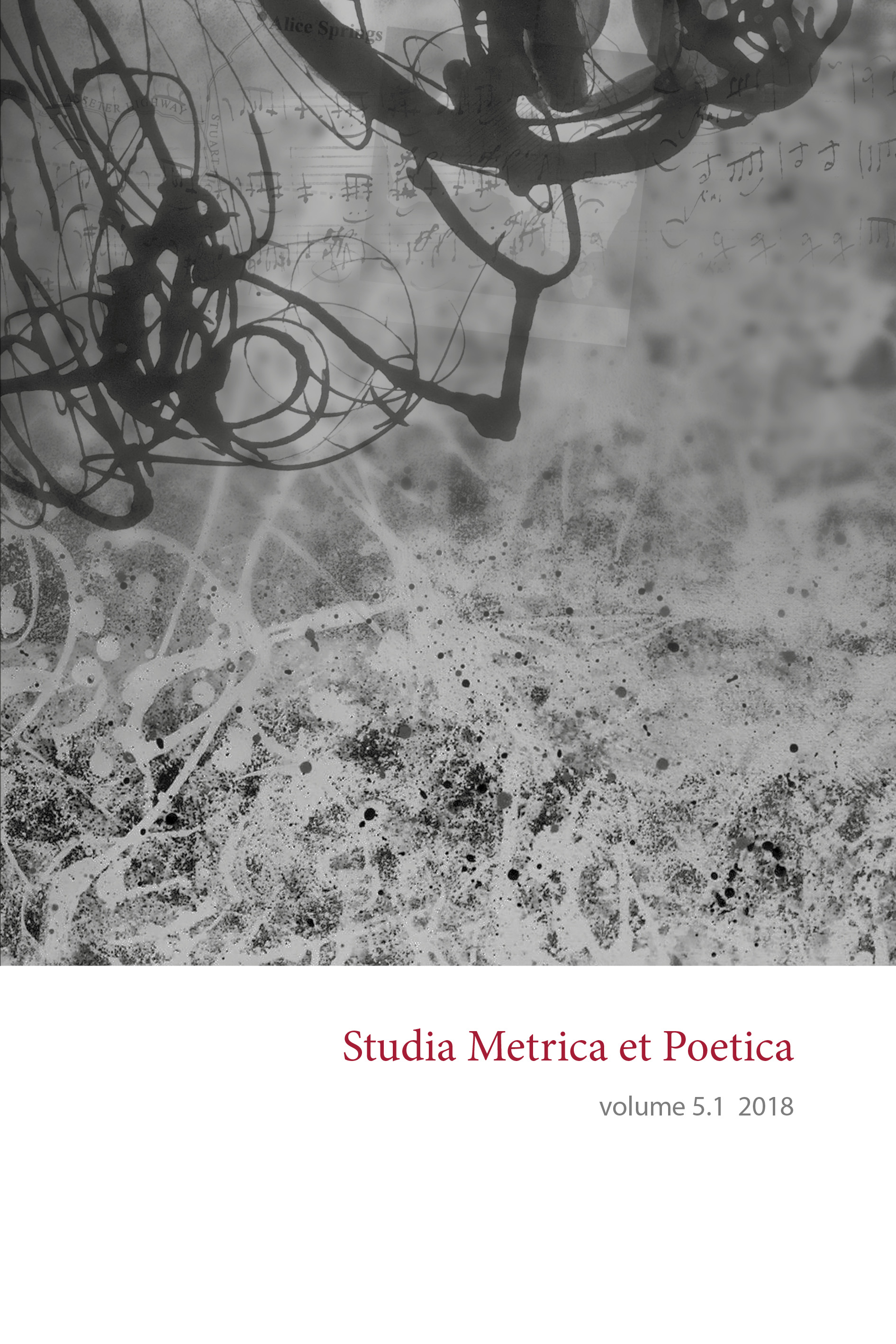Optimality Theory, Language Typology, and Universalist Metrics
DOI:
https://doi.org/10.12697/smp.2018.5.1.01Keywords:
verse structure, Universalist Metrics, Optimality Theory, Language Typology, literary universals, alliterative meter, iambic meter, Irish Gaelic meters, Old Germanic metersAbstract
In Russom (2011), I defended a universalist hypothesis that the constituents of poetic form are abstracted from natural linguistic constituents: metrical positions from phonological constituents, usually syllables; metrical feet from morphological constituents, usually words; and metrical lines from syntactic constituents, usually sentences. An important corollary to this hypothesis is that norms for realization of a metrical constituent are based on norms for the corresponding linguistic constituent. Optimality Theory provides a universalist account of relevant linguistic norms and deals effectively with situations in which norms conflict, employing ranked violable rules. Language Typology provides a universalist account of relevant syntactic norms. In this paper I integrate these independently grounded methodologies and use them to explain the distribution of constituents within the line, identifying a variety of important facts that seem to have escaped previous notice. Universalist claims are tested against meters from each of the major language types: subject-verb-object (SVO), subject-object-verb (SOV) and verb-subject-object (VSO). My findings are incompatible with the claim that “lines are sequences of syllables, rather than of words or phrases” (Fabb, Halle 2008: 11).


